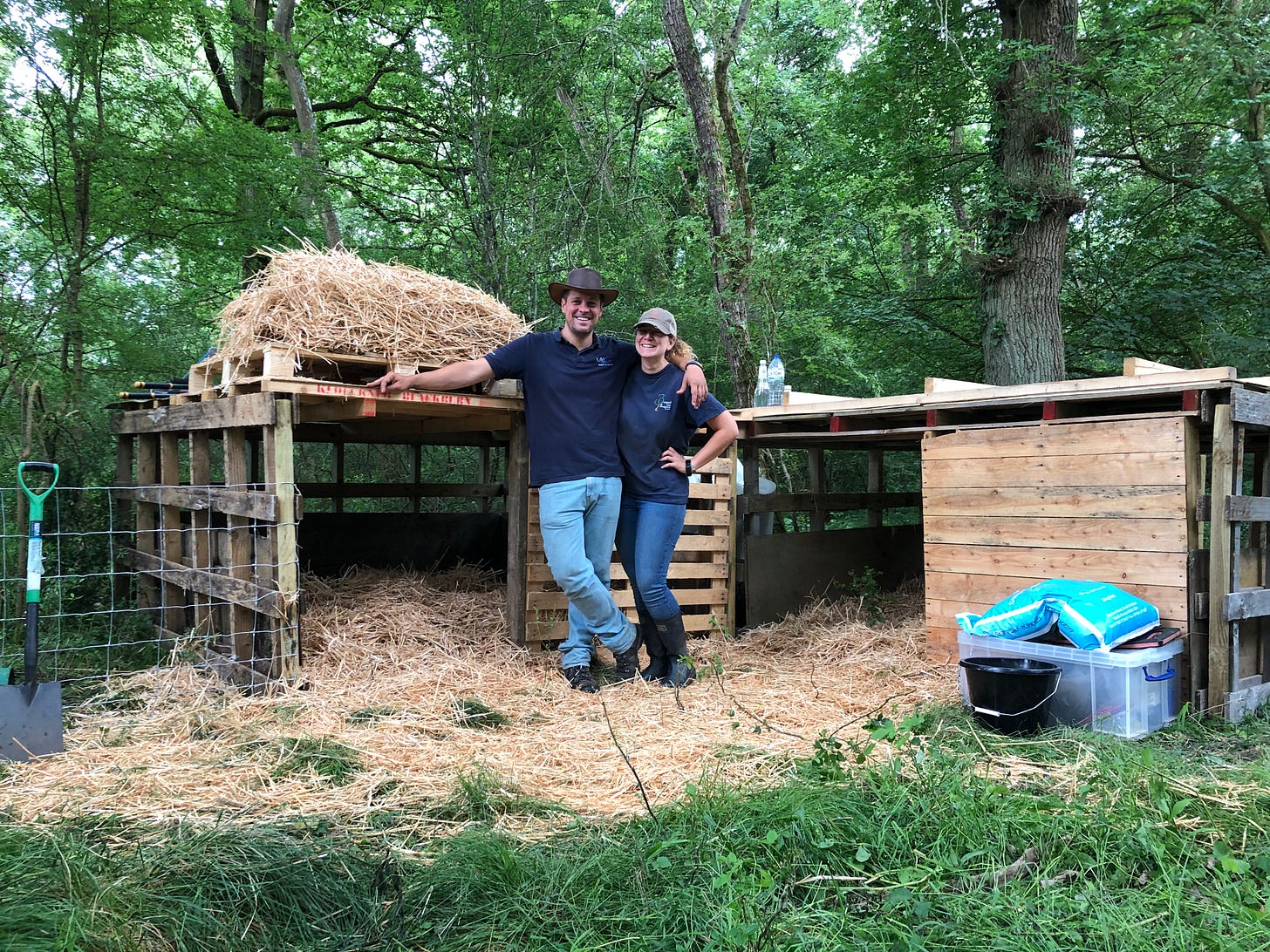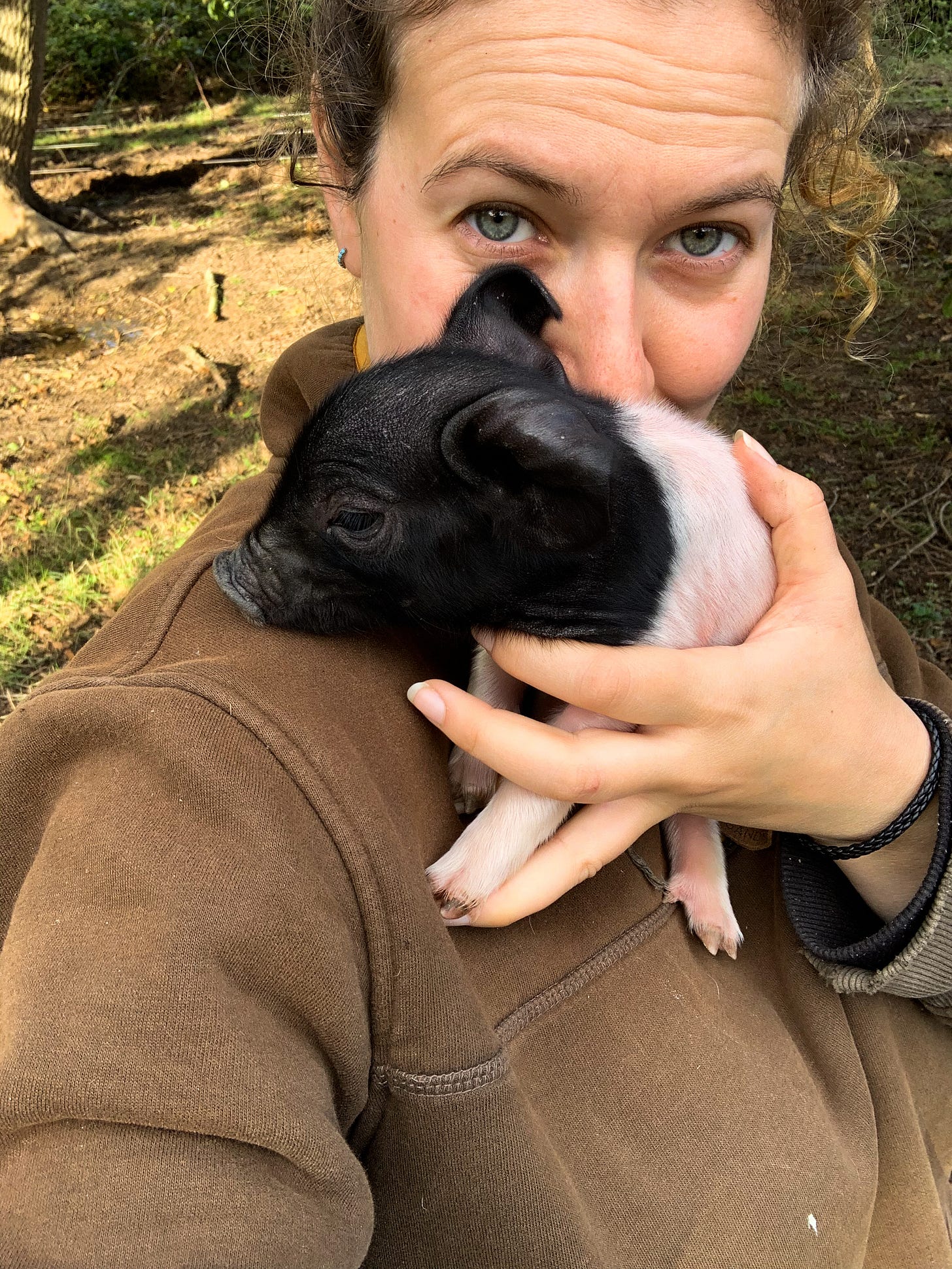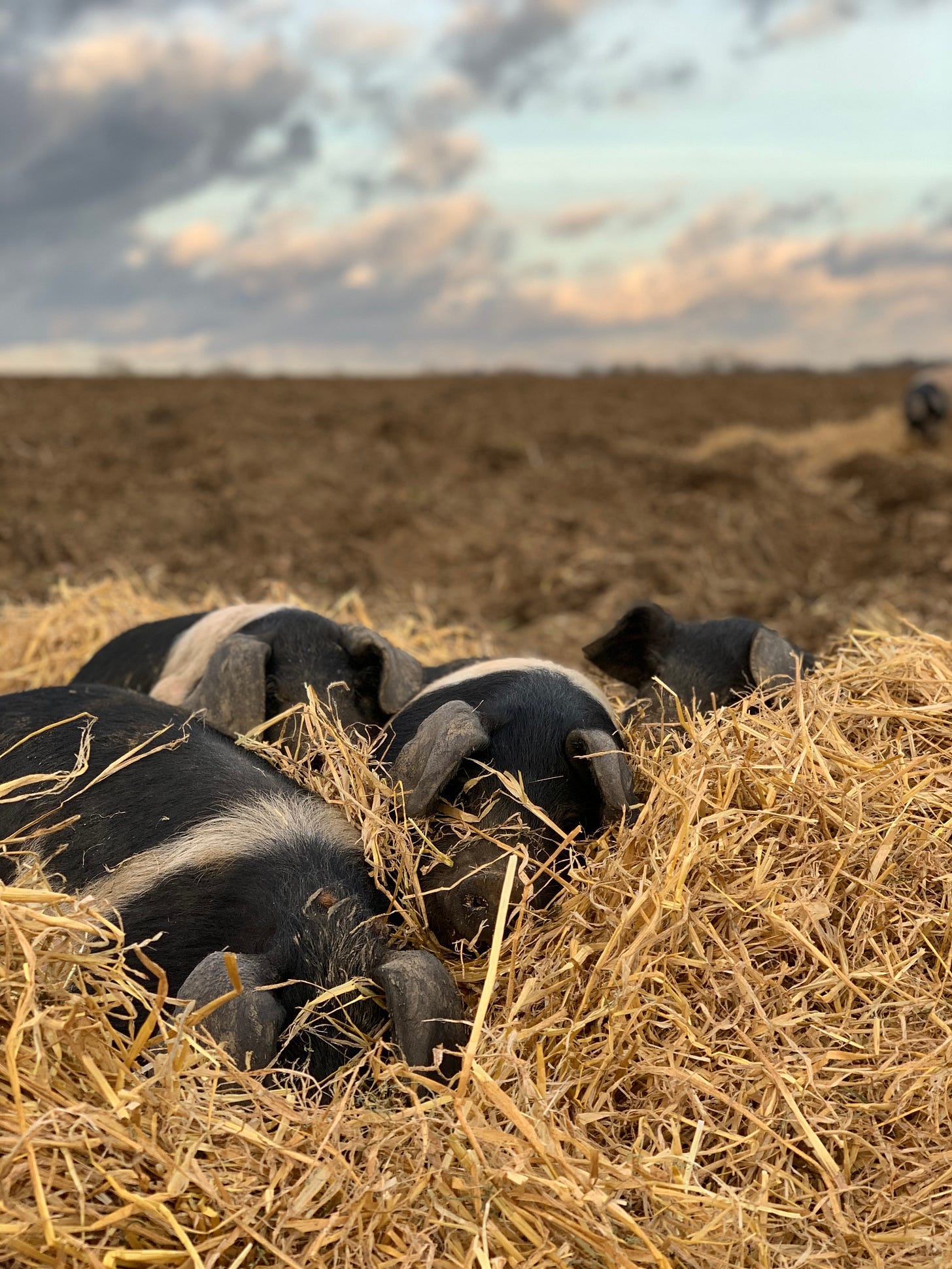The Woodland Pig Co. Story
Starting a Farm During a Pandemic
Our story doesn’t begin generations ago on inherited land, steeped in tradition or family legacy. Instead, it began in 2020, in the midst of a pandemic—a time when the world came to a standstill, and we found ourselves re-evaluating our lives, our work, and what we truly wanted for our future. For Matt and me, it was a chance to take control over what we were eating and how it was raised. We knew it would change our lifestyle, but we couldn’t have anticipated how profoundly it would reshape our relationship with the land, with food, and with each other.
Our journey started with 12 weaners tucked deep into the woods of Odiham Common, a dense, overgrown forest as wild as our ambitions. At the time, I was managing a pub in Hungerford, working endless hours away from home, while Matt was building his knackerman business. When the lockdown forced my pub to close, I suddenly found myself able to spend more time by Matt’s side, joining him on his collections and helping out on a nearby farm. Out there, in the calm rhythm of the countryside, we rediscovered our shared passion for farming and the land.
Coming from the hospitality industry, I had always had a deep appreciation for quality food and sourcing locally. Matt and I are both passionate about food, but we often felt let down by the lack of transparency and quality in what was available, even from some local suppliers. When we learnt that our nearby “free-range” farm shop was actually raising pigs indoors, we saw a real opportunity to raise pigs the way we felt they should be raised—free-range, naturally foraging, and ethically cared for. And so, with a vision in mind, we started searching for land to bring our dream to life.
As luck would have it, some friends offered us a small, overgrown plot of woodland on their estate—an ideal setting for pigs. With little more than determination, we scraped together the essentials. Our budget was tight, so we repurposed recycled materials wherever possible, building pig shelters from wooden pallets that we hauled half a mile through the woods. I can still remember dragging pallet after pallet along narrow, winding paths, determined to make it work. With our makeshift setup finally in place, we welcomed our first 12 weaners, and The Woodland Pig Co. was born
.Those early days in the woods were a blend of peace and steep learning curves. The pigs loved roaming through the undergrowth, foraging among the trees, cooling off in little streams, and snacking on fallen acorns. But we quickly realised that moving pigs in and out of dense woodland was no easy task. On the day our weaners arrived, they needed to be walked down a narrow path, around a lake, and over a bridge—a route that, as novice pig farmers, we hadn’t fully prepared for. As luck would have it, half the group split off immediately, and I had to guide them ahead while Matt chased the rest around a ditch. Despite the chaos, they eventually settled, and life in the woodland began.
Sadly, our time on Odiham Common was short-lived. Natural England stepped in with restrictions on non-native bedding and feed, citing preservation concerns. With limited options, we moved to a new site at Orchard Cottage, an old, overgrown orchard that had once been a pig unit. Clearing that land became a new adventure, and this time, our pigs played a pivotal role in reclaiming the space.
At Orchard Cottage, we began to grow. The generous family who owned the land gave us five acres to graze, complete with an old barn for shelter and storage. Here, we also discovered some abandoned pig sty’s hidden under thick brambles, which we cleared and transformed into farrowing pens. This new chapter allowed us to expand in ways we hadn’t anticipated, even beginning our own breeding journey.
Our breeding venture started with six gilts we had moved from the woodland. Without much guidance on the process, we brought in a boar named Wiggam and hoped for the best. To our surprise, he did his job quickly, resulting in six back-to-back farrowings during a freezing February. While I was initially a nervous wreck, worrying about every little detail, the gilts amazed us with their natural instincts. By the end of that week, our herd had doubled
.
Our next major shift came when we were offered grazing land on a 50-acre potato field at Andwell Farm. This marked the beginning of our regenerative farming approach, rotating our pigs across fields and seeing firsthand how their manure enriched the soil. We watched in awe as, after each rotation, crops grew back stronger and healthier. This wasn’t just farming; it was transformation.
Throughout all these changes, we faced challenges—from learning the nuances of pig husbandry to figuring out how to sell our pork. Initially, we sold solely through our online shop, with orders advertised through social media. When we launched, we were overwhelmed by the response and quickly sold out. But our success came with new lessons: we realised we needed more supply to meet demand, which ultimately led us further into breeding. Each new phase brought its own hurdles and triumphs
.
Our community has been incredibly supportive throughout our journey, embracing our pigs and our mission. Moving to Andwell allowed us to put up a sign by the main road, which sparked even more interest. Soon, we were selling at farmers’ markets and local events, and nothing felt more rewarding than seeing our pork on the menus of nearby pubs and restaurants. Slowly, The Woodland Pig Co. was becoming a known name in our region.
Looking back, it’s hard to believe how far we’ve come—from those first 12 weaners in the woods to a regenerative farm producing exceptional pork. Every step has taught us something new. And though we know there will be more challenges ahead, we’re committed to seeing this journey through—no matter where it takes us.







Here’s to many more happy and productive years ! Your pieces and your pics are a joy to many and an encouragement to press for more common sense in food production - all the very best .
I love reading about your regenerative farm journey!